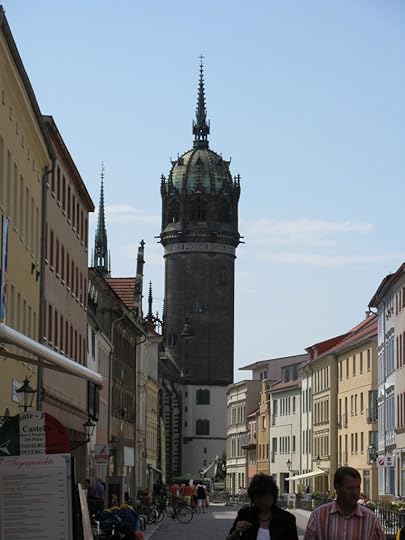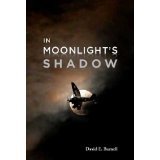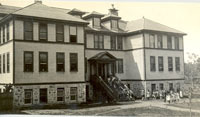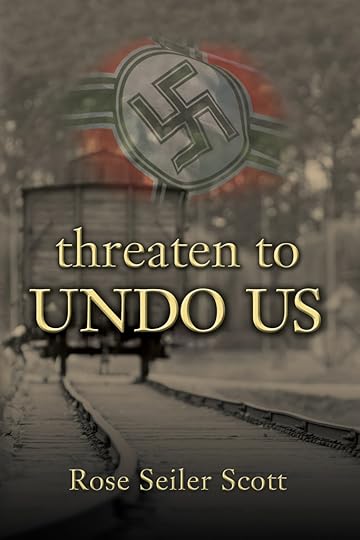Rose Seiler Scott's Blog, page 3
March 16, 2016
Wittenberg: A Tower of Hope
I’m launching the new cover for Threaten to Undo Us with a blog series highlighting a trip to Europe in 2009. Join me on my adventures as we travel through Poland and the former East Germany!

Ein Feste Burg
Ein’ feste Burg ist unser Gott,
Ein gute Wehr und Waffen;
Er hilft uns frei aus aller Not,
Die uns jetzt hat betroffen…
A mighty fortress is our God, a bulwark never failing;
Our helper He, amid the flood of mortal ills prevailing…
Und wenn die Welt voll Teufel wär
Und wollten uns verschlingen,
So fürchten wir uns nicht so sehr,
Es soll uns doch gelingen.
And though this world, with devils filled,
Should threaten to undo us,
We will not fear, for God hath willed
His truth to triumph through us.
Rising above the town of Wittenberg, a wide Gothic tower with a round dome and an ornate spire points to heaven. Below its windows the inscription reads: Ein Feste Burg ist Unser Gott, Ein Gute Wehr und Waffen. These words begin Martin Luther’s famous Reformation hymn, sung for centuries in German and English in churches throughout the western world.
Seeing the tower when I previously had no idea of its existence was a thrill because long before I visited the former German Democratic Republic, the first line of Luther’s hymn had become the working title for my book. Since the family in the story was Lutheran it seemed appropriate, and once decided the theme of a fortress began to weave itself into the book, as symbolic of hope and protection for the family.

Castle Church tower
I didn’t take a picture of the door that Luther nailed his 95 theses or protests on, because the original door no longer exists–it was destroyed in a fire and I think when we were there the memorial door was under renovation. (More information on the historic site can be found here: http://www.sacred-destinations.com/ge... )

Luther nailed his 95 theses to the door of the All Saints church ( also known as Castle church) and is buried here.
Luther’s story begins before that though, with a profound change that happened in his heart. As a monk at an Augustinian order, Luther studied theology and Scripture extensively. He wrestled in particular with the book of Romans and its contrast with the Roman Catholic church practice of offering partial forgiveness of sins in exchange for money. According to the apostle Paul, faith alone was sufficient for salvation. Luther’s understanding of righteousness by faith was incredibly freeing and has been for millions since.
The certainty of salvation as a fortress of God’s making is expressed in the second verse of the hymn:
Did we in our own strength confide, our striving would be losing, were not the right man on our side, the man of God’s own choosing.
God is a fortress of hope when life seems hopeless and a certainty to cling to in uncertain times.
But I discovered Wittenberg has a dark secret…
Stay tuned for Part 2
The post Wittenberg: A Tower of Hope appeared first on Rose Seiler Scott.
January 20, 2016
Book Review: In Moonlight’s Shadow by David E. Burnell
Richard Forrester is a brash young pilot and a Canadian, flying “In Moonlight’s Shadow” for the Royal Air Force during World War Two. After an error in judgement he is assigned to a short leave, during which he meets the Lady Armitage. She invites Forrester to her estate home and introduces him to her attractive but aloof niece Susan Rosebury. 
Returning to duty, he takes a quick mission to the Continent -a foray into enemy territory to attack the Germans. This results in a series of events that will change everything for Forrester. Stranded in occupied France, with only his wits to help him survive he tries to elude the enemy, but encounters an SS officer about to rape a young woman. Forrester saves her from the man’s clutches, but his actions place both his and Jacqueline’s lives in danger.
Back in England, he finds his role in the RAF has changed. He is sworn to secrecy about what he is doing and finds himself torn between the two lovely young women.
An inciting incident causes Forrester to take matters into his own hands, and he inflicts some well deserved damage to the Gestapo headquarters. Only problem is he did not have his CO’s approval for this particular junket. The consequences for Forrester are far- reaching. Caught in a web of intrigue and danger, he is unable to explain to his new girlfriend or anyone else what he has been up to. When Forrester goes mysteriously missing, they are left to wonder what kind of man he really is. A hero or a miscreant?
This book has something for everyone who likes World War Two fiction. A love story, action and intrigue are woven believably throughout. Aside from the character’s occasional point of view shift, the historic depiction rings true and authentic with detail and description that rarely overwhelms. An enjoyable read.
Available through
http://goo.gl/T93fh9 and on Amazon.ca http://goo.gl/W3kOq7
The post Book Review: In Moonlight’s Shadow by David E. Burnell appeared first on Rose Seiler Scott.
January 1, 2016
Mein Kampf: A struggle and dangerous ideas
Public Domain
Ideas can be dangerous. Books of ideas, even more so. Adolf Hitler’s infamous tome, first published in 1925-26 has just entered the public domain and if there was ever a dangerous book of ideas, Mein Kampf is it.
Fearing that it could incite anti-semitism, especially in Germany, some people want the book to be severely restricted. Others see it as historically significant. As a compromise, the state of Bavaria, which had held the copyright, is releasing an annotated version for study and to shed light on this dark era of history.
For the purposes of providing historical context in my book, I wanted to use a quote from Mein Kampf. Speaking of struggle, I spent a fair bit of time trying to figure out who actually held the rights to Mannheim’s English translation, but when I finally tracked down the correct publisher my query to use a short quote was bounced back and forth like a ping pong ball. When I finally reached the right department I had to answer pointed questions as to why I wanted to use the quote. Eventually I received permission, but it was only for the US publisher and I would have to make a separate query to the Canadian publisher, which would cost me time and money. With regret I chose to eliminate the quote.
Mein Kampf has been described as disturbing, tedious, confusing, redundant, turgid, repetitious, wandering, illogical and hysterical. After reading a number of quotes from the book I must say I concur. Trying to figure out which of many directions to go with this blog post, was also a tedious struggle!
One idea that occurred to me is that Fascism and communism, when boiled down are really the same thing. While Hitler considered himself vehemently against Marxism and what he considered its Jewish origin, his book reveals that his ideas, when boiled down, aren’t that much different.
Propaganda functioned as a machine in both the communist and fascist states.
Hitler’s thoughts on propaganda and its recipients:
I at once took charge of the propaganda, believing this branch to be far the most important for the time being…The first necessity was to spread our ideas among as many people as possible (chapter 5). Its chief function is to convince the masses, whose slowness of understanding needs to be given time in order that they may absorb information; and only constant repetition will finally succeed in imprinting an idea on the memory of the crowd (chapter 6).
Like Marx and Lenin, Hitler didn’t think much of the bourgeois or middle class and credited them with a lack of intelligence, especially if they didn’t agree with his ideals of racial superiority.
While the bourgeois blockhead stares with amazed admiration at the notice that tells him how marvellous are the achievements of our modern educational technique, the more cunning Jew sees in this fact a new proof to be utilized for the theory with which he wants to infect the public, namely that all men are equal. It does not dawn on the murky bourgeois mind that the fact which is published for him is a sin against reason itself (chapter 2).
Of course, in the class struggles of Marxism, the wealthy bourgeois were considered the enemies of the state, but Hitler’s brand of fascism pitted races, rather than classes, against one another.
Both regimes thought it important to manage religious belief.
Marx and Lenin managed religion by eliminating God and religion from all public life, equating religion with the despised bourgeois class. They made the state the new God.
Hitler’s method was perhaps more insidious, twisting Biblical ideas to his own ends, attempting to Nazify the churches, undermine their programs and made the state itself a kind of church, complete with ostentatious ceremonies celebrating Nazism.
While both Neo-Nazis and atheists have tried to brand Hitler as a Christian, his ideas do not mesh with orthodox Christian beliefs.
Original sin, as revealed in the Bible and traditional theology is disobedience. Hitler’s ideas on this doctrine appear to be his own:
… they were simply told that they ought to put an end to this truly original sin of racial corruption which is steadily being passed on from one generation to another (chapter 2).
He also had issues with missionary work:
…they try to convert the Hottentots and the Zulus and the Kaffirs and to bestow on them the blessings of the Church, while our European people… are left to become the victims of moral depravity, the pious missionary goes out to Central Africa and establishes missionary stations for negroes…It would better accord with noble human aspirations if our two Christian denominations would cease to bother the negroes with their preaching, which the negroes neither desire nor understand (Chapter 2).
Marx and Stalin are well known for advocating terror to impose communism and Hitler also advocated the use of force to impose his ideas:
Only in the steady and constant application of force lies the very first prerequisite for success (Chapter 5).
Though considered opposite poles of the political spectrum, the outcomes of both Nazi ideology and Marxist ideology has been the same; heartlessly depraved leaders, economic ruin and most significantly the inhumane treatment and murder of millions of innocent people.
My point is that, evil is evil no matter what side of the political spectrum it falls on. In Mein Kampf, the ideas espoused are not only repugnant but just plain morally wrong.
It would be a struggle on many levels for me to read the entire book, so I don’t think I’ll bother.
I’ll stick with a different controversial book that has been restricted or banned in dozens of countries. Is the Bible dangerous? Yes, but for entirely different reasons. Reading the Bible with an open heart to its message can change people from the inside, no matter what race, culture or class they are.
Of course, the central character is Jewish.
Perhaps Hitler should have given it a more careful read…
Quotes from Mein Kampf are from the Murphy translation- Creative Commons
The post Mein Kampf: A struggle and dangerous ideas appeared first on Rose Seiler Scott.
November 10, 2015
Opposites
Earlier this year, my first novel, THREATEN TO UNDO US was published. It is a war story, and though I tried to write it as hopeful as possible, you can imagine it was heavy and difficult to write.
While I was waiting for the publication process (these things don’t happen overnight), I submitted a few lighter short pieces of writing to the editors of the popular Hot Apple Cider Series. Out of the three pieces I submitted, they chose two for the third book HOT APPLE CIDER WITH CINNAMON. Yay!
You’ll love this book! Not just the part I wrote, which I hope you will enjoy, but all the stories! Some are heart-warming, some funny, others might make you cry. We all have those times in life when we feel discouraged, ill or exhausted and need a little cheer. Or perhaps we are just too busy to get through a novel. This book is perfect for those times.
Or maybe after you’ve read THREATEN TO UNDO US.
The book is a compilation of 61 Christian authors from across Canada.
If you are in the Greater Vancouver area and would like to purchase your copy from me, here are the upcoming events:
I will have copies on hand of all the Hot Apple Cider books, including a gift pack of all three.
Murrayville Holiday Market November 13 and 14th only
North Langley Community Church Women’s Breakaway November 18th 9:15 (pre-register with Breakaway)
Christmas Event with Carola “Bethea” Meerkerk November 27th 7: 00 PM (please contact myself or Carola to RSVP)
Book Launch Christmas Open House and shopping at my House: November 28th 6:30-10:00 RVSP via contact form or Rose Seiler Scott FB author page
Langely Evangelical Free Breakaway December 2 8:45 (pre-register with Breakaway)
Fort Langley Christmas Market December 19th – details TBA
For further information or to purchase online see link below:
HACConesheetHiResColourNov2 HACConesheetHiResColourNov2015 (1)
The post Opposites appeared first on Rose Seiler Scott.
September 16, 2015
Goodreads giveaway!
Hello Followers! Win one of five free copies of my book!
As the Third Reich crumbles and the Red Army marches into Poland, Liesel is forced to flee her home. With a new regime taking over, her husband a prisoner of war in Russia, and four young children to provide for, Liesel finds herself in a nearly impossible situation. What does the future hold for her family? Based on a true story, THREATEN TO UNDO US (May 2015) is a novel with a unique perspective on World War Two and the years following.
The giveaway is a draw for my book, done through www.goodreads.com, a social media site for people who love to read and share what they are reading. The giveaway goes live at midnight tonight and ends in two weeks! May the odds be ever in your favour!
Here is the link: https://www.goodreads.com/book/show/2...
While you are entering, I would love if you added the book to your “to read” shelf!
The post Goodreads giveaway! appeared first on Rose Seiler Scott.
September 10, 2015
View from an airplane
From the window of the airplane, the earth below is a random collection of rugged snow-topped peaks. The Rockies give way to placid lakes scattered like pearls over the snowy landscape, strung together unevenly by meandering streams, rivers and forests.
window of the airplane, the earth below is a random collection of rugged snow-topped peaks. The Rockies give way to placid lakes scattered like pearls over the snowy landscape, strung together unevenly by meandering streams, rivers and forests.
We descend into the lowlands where the marks of human habitation are easy to spot. Rectangular fields furrowed in straight lines. Barns and houses, situated neatly in a corner; the lines between properties delineated clearly with fences and hedges. A ribbon of highway cuts along the valley towards the suburbs. The patterns of vast parking lots, vehicles, uniform box stores and rhythmic subdivisions are the marks of civilization as I know it.
It occurs to me that humans like order. The farmer ploughs a straight line. The builder uses squares and rectangles for his measure. We operate according to clock, calendar and schedule, meting out our minutes as if we were in charge of them. Our plan, on any given day, is to get from Point A to point B along the smooth and efficient highway with no traffic or accidents.
We want to know our children will come home from school. That our parents will live a long and happy life and die peacefully in their sleep. We want the security of knowing we have a job tomorrow with its accompanying paycheque.
Like Job in the Bible, we don’t appreciate the disruption of devastating illness, random violence or the collapse of financial security. When relationships break, when a loved one falls ill and dies, our desires for predictability and order are shattered. We want our plans to work out.
When viewing the chaos of life from an earthly perspective, some refuse to acknowledge a God who allows such apparent disorder. Others cry out to the God of the universe, asking Him to re-order our lives, to make the crooked straight and to restore what is broken and lost. To make everything to how. It. Should. Be. According to our straight and limited designs.
But God’s order is not like ours. His designs are subtle and yet profoundly beautiful. As viewed from the airplane, I do not first notice the design etched upon the crags of the mountains where the snow has collected or the perfection of individual snowflakes. I cannot fathom the fractal placement of each tree branch and the measured out tributaries of the snaking river which follow this same pattern. The Fibonacci sequence which is the numerical blueprint for flower petals and pinecones is a complex mystery to my mind. The Creator whispers His mysteries in the secrets of nature down the side roads, along the winding forest trail and even out the window of an airplane.
That same God reveals beauty in other unexpected places. The smile of a child with Down’s syndrome. The vision of heaven experienced by a woman on her deathbed. The sorrow of a prison inmate who repents from his past life and begins anew.
I don’t like to be told “everything happens for a reason.” It is such a clumsy attempt to sum up God’s plan when things go awry. We might naively think we should find a reason or even think we know it. But if we are honest we realize it will rarely be in this life. Humanly speaking, we are incapable of seeing it, just as the intricacies of a snowflake can barely be discerned without a magnifying glass.
The patterns of nature are not immediately visible, but they are there for those who would observe. Life in this world may seem haphazard and unfair, but when we reflect on God’s creation, study His character and take note of His workings throughout the kaleidoscope of history, glimpses of a pattern will emerge. The rest will be revealed. In God’s own time and way.
The post View from an airplane appeared first on Rose Seiler Scott.
August 24, 2015
Book Review: Encounters on the Front Line
This honest and poignant memoir is Elaine Harvey’s testament to the beguiling and tragic Cambodia.
Her first experience in a refugee camp with the beleaguered Khmer people is in 1980, as a nurse for the Red Cross after the Khmer Rouge uprisings in the time of the infamous Pol Pot. In the border camps she treats unspeakable injuries and illness, working under conditions that can only be imagined.
In spite of the best medical efforts of their team, the aid workers watch, heartbroken, as people die– a beautiful young woman, an old man, victims of a cruel regime. Saddened, shell shocked and exhausted, Harvey perseveres through love and loss, watching mothers without children, children who are starving and deteriorating working conditions. Her group is evacuated from their clinic that they had been working in as it was burnt down by warring factions.
But there are bright spots: working relationships with her colleagues, cherished friendships and even love are forged in this crucible. “A girl, about four years old, her bare feet crusted with red mud, spills the milk down her tattered pink dress, attracting flies. I lift her on my lap and we rock back and forth. She doesn’t smile but her little heart beats against my breast. She is nameless, maybe motherless; all I know is I want to take her to Canada, give her a home, food, safety, and most of all, love…she is swept into the arms of the French doctor, over and up into the truck, on her way, her heart still beating next to mine.” (p. 64)
Like this little girl whose heart beats next to her, Cambodia’s heart beats next to Elaine Harvey’s, even when she has returned home. 25 years later, Cambodia calls her back. Harvey hears about Partners in Compassion, which runs an orphanage. She goes to help as a nurse, but her efforts are challenged. These things are complicated and so is Cambodia. In a way, this is the soul of the book.
Harvey wants to reach out, now with nursing, next with healing touch “…to reach out, not just with touch but with words, is the bridge I want to cross.” But long term change and healing is not always possible as she navigates her way around the broken yet vibrant country.
In the author’s third visit she focuses more on travel and writing as she encounters people on the front lines and attempts to define her own front line. The writing is emotionally compelling. Cambodia is painted vividly and Harvey’s reactions, both joy and bewilderment are visceral. “…a land where sorrow falls like monsoon rain.” p. 163. .
For this reader I would have liked to hear more of Harvey’s reasons for going to Cambodia, the catalysts that drove her and her relationship with her own country. Aside from these questions, reading Encounters on the Front Line was to experience a little of the heartbeat of Cambodia next to mine. An intriguing read!
Available at:
Promontory Press: https://goo.gl/XxgjIn Chapters Indigo: https://goo.gl/PcUI5F Amazon.ca: http://goo.gl/kPlwQu Amazon.com: http://goo.gl/kWuJOR
The post Book Review: Encounters on the Front Line appeared first on Rose Seiler Scott.
August 18, 2015
To Post or not to Post? The question for authors and their followers.
If you’ve follo wed this blog at all, you probably know I’m a recently published author. If you are one of the rare people who don’t know, perhaps that is because you haven’t been as sucked into the “social media” drain as I have. In which case you are probably not reading this…
wed this blog at all, you probably know I’m a recently published author. If you are one of the rare people who don’t know, perhaps that is because you haven’t been as sucked into the “social media” drain as I have. In which case you are probably not reading this…
So here’s the thing.
Please understand that even those of us who are published by what they call “Traditional Publishers,” have been put into the position of promoting our own books.
Only a select few—the Anthony Doerrs, JK Rowlings and Harper Lees of the writing world, get the kind of exposure from their publicists that we all dream of. You know the kind- The ones that show up on the front tables at Chapters, get write-ups in national magazines and coveted spots in the airport bookstores.
The rest of us have to kick that launch promotion can as far as we are able. Ourselves. With a little help from our friends, our mothers and of course Social Media.
Use facebook, they say. And twitter. Post interesting stuff. Share and like other people’s stuff. Build relationships. Be nice. Oh and occasionally remind people you wrote a great book!
I invited all my FB Friends to my events. Then I invited to more events, because not everyone made it to the first event. Maybe they didn’t see it ‘cause they don’t FB much. Perhaps they were just busy and had other more important things to do. Give their dog a bath– I don’t know. Truth is, I don’t attend everything I get invited to either and I am extremely grateful for the overwhelming support I’ve received in this journey from family, friends and people I haven’t even met.
The thing is, I didn’t post all that much. I made a few edits, which I often do as I am a spaghetti head and overlook important things or overthink how I worded something—the normal hazards of being a writer or posting on my phone and hitting the wrong key. By the way, posting on the phone is a dumb idea. Don’t you hate autocorrect? What I didn’t realize was that each of my “edits” or addition to the event post showed up in people’s feeds. And of course people commented, shared and liked. Which of course I greatly appreciate!
I boosted a few FB posts on my author page. My sincere hope is that this went “broad” and not just to my present followers. But a lot of my friends and relatives are friends with my other friends. Sometimes they hit “Share.” A round of thank yous to those who do this, but you know what that means. Yep. You just might see that post several times.
Promotional tweets seem to be slightly more acceptable on Twitter- so I tweet my book about once a day, because I am still in the early stages of this journey and I have to let people know about my book. Got to strike while the iron is hot. Today’s new thing quickly becomes tomorrow’s old thing. Hopefully that will be “old classic” thing!
I have also been on the other side of the fence- the recipient of repeated robot posts “buy my book,” etc. Honestly I was so annoyed that I had to mute a fellow author. Sorry.
I want to find that middle place. Informing but not imposing.
Please know that my relationship with you– my family, friends and readers, is more important than book sales. If my posts, tweets or book recommendations are annoying you, you can hide them from your feed. You can unfollow me. (Incidentally for those who aren’t aware, this is different from unfriending in FB). If you think my actions are obnoxious, let me know.
But very gently please, because the learning curve has been steep and I am trying hard not to be annoying! I would love to hear your thoughts on this, whether you are an author or a reader.
P.S. Did I mention I wrote a book… 
July 7, 2015
Is there any hope in a world turned upside down?
The post Is there any hope in a world turned upside down? appeared first on Rose Seiler Scott.
June 2, 2015
Truth and Reconciliation

Port Alberni Residential School
Today the “Truth and Reconciliation Commission,” met to release and discuss their report on what has been revealed to be our national shame.
I confess that for most of my life I didn’t know many first nations people or much about residential schools. I lived with my family and attended a school that I could (thankfully) come home from every day.
Over the years, in my travels, I have passed through communities where paint was peeling off the houses and the grass was unkempt. Old washing machines adorned front yards. “A reserve,” we’d say, shaking our heads and following up with words like “lazy” and “entitled.”
I passed judgement on people I didn’t even know.
Jesus knew the inclination of our callous hearts when He said, “Do not judge or you too will be judged.”
Today that judgment has fallen on our country, as one by one our first peoples have quietly shared their stories of pain, of families ripped apart, systemic abuse and a culture in tatters.
The truth has been told. Sadness and despair has voices and faces we cannot ignore. I am sorry for your pain. I realize it is time for attitudes to change, beginning with mine.
May the path to reconciliation and healing begin.
The post Truth and Reconciliation appeared first on Rose Seiler Scott.






